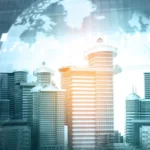When stepping into the realm of finance, particularly in the pursuit of homeownership or business ventures, the terminologies can often become entangled, leading to confusion. Two such terms that are commonly interchanged but hold distinct meanings are “mortgage” and “loan.” Understanding the disparity between these financial instruments is crucial for making informed decisions regarding personal or business finances.
What is a Mortgage?
A mortgage is a specialized type of loan specifically designed for the purchase of real estate. In essence, it is a legal agreement between a borrower and a lender, typically a bank or a financial institution, where the lender provides funds to the borrower to purchase a property. The property itself serves as collateral for the loan, meaning if the borrower fails to repay the mortgage, the lender has the right to seize the property through a process known as foreclosure.
Key Difference of a Mortgage
Purpose:
Mortgages are exclusively used for purchasing real estate properties, such as homes, commercial buildings, or land.
Collateral:
The property being purchased serves as collateral, providing security to the lender in case of default.
Term Length:
Mortgage terms vary widely, typically ranging from 15 to 30 years. The borrower makes monthly payments towards the principal amount borrowed along with interest, usually at a fixed or adjustable rate.
Interest Rates:
Interest rates on mortgages can be fixed, meaning they remain constant throughout the loan term, or adjustable, where they fluctuate based on market conditions.
Down Payment:
Borrowers are usually required to make a down payment, a percentage of the property’s purchase price, upfront. The size of the down payment can affect the interest rate and overall cost of the mortgage.
Legal Formalities:
Mortgages involve legal documentation, including a promissory note outlining the terms of repayment and a mortgage deed securing the lender’s interest in the property.
What is a Loan?
A loan is a broader financial concept encompassing various forms of borrowed funds provided by a lender to a borrower. Unlike a mortgage, which is specific to real estate transactions, loans can be used for a myriad of purposes, including but not limited to education, vehicle purchases, business ventures, or personal expenses.
Key Difference of a Loan
Versatility:
Loans can serve diverse purposes, ranging from financing education, purchasing vehicles, consolidating debts, to funding business endeavors or covering personal expenses.
Collateral Requirement:
While some loans, like mortgages or auto loans, are secured by collateral, many loans, such as personal loans or student loans, are unsecured and do not require collateral. Instead, lenders evaluate borrowers based on creditworthiness and income.
Repayment Terms:
Loan terms vary widely depending on the type of loan and lender. They can be short-term, such as payday loans or installment loans, or long-term, extending over several years.
Interest Rates:
Similar to mortgages, loans may have fixed or variable interest rates, depending on the type of loan and prevailing market conditions.
Application Process:
Applying for a loan typically involves providing personal and financial information to the lender, who assesses the borrower’s creditworthiness, income, and debt-to-income ratio to determine eligibility and terms.
Differences Between Mortgage and Loan
Mortgages are specifically for real estate purchases, while loans have a broader range of purposes.
Mortgages are typically secured by the property being purchased, while loans may or may not require collateral.
Mortgage terms are usually long, while loans can vary in duration.
Mortgage applications often involve rigorous documentation and scrutiny, while some loans may have simpler application processes.
Mortgages entail specific legal procedures, including a mortgage deed and promissory note, which may not be necessary for all types of loans.
Is a mortgage the same as a loan?
A mortgage is a specific type of loan used to purchase real estate, typically a home. While all mortgages are loans, not all loans are mortgages. Loans encompass a broader category of borrowing, including personal loans, car loans, and business loans, whereas a mortgage specifically refers to a loan secured by property.
What’s better: a loan or mortgage?
The better option depends on your financial goals and circumstances. Mortgages are often used to purchase homes and offer lower interest rates and longer repayment terms compared to other types of loans. However, if you need funds for purposes other than buying real estate, a different type of loan may be more suitable. It’s essential to evaluate factors such as interest rates, repayment terms, and the purpose of borrowing to determine what’s best for you.
Is a mortgage better than a home loan?
The terms “mortgage” and “home loan” are often used interchangeably, but technically a mortgage is a type of home loan. So, it’s not a matter of one being better than the other, but rather understanding the nuances. Home loans can refer to various types of financing used to purchase or refinance a home, while a mortgage specifically refers to a loan secured by real estate.
Does a mortgage count as a loan?
Yes, a mortgage is a type of loan. Specifically, it is a loan used to purchase real estate, with the property itself serving as collateral. When you take out a mortgage, you’re borrowing money from a lender to buy a home, and you agree to repay the loan over a set period, usually with interest. So, while all mortgages are loans, not all loans are mortgages.
The Bottom Line
While both mortgages and loans involve borrowing money from a lender, they serve distinct purposes and have unique characteristics tailored to their intended use. Understanding these disparities is essential for making informed financial decisions and navigating the complex landscape of borrowing and lending. Whether embarking on the journey of homeownership or seeking financial assistance for other endeavors, clarity on the disparities between mortgages and loans empowers individuals to make sound financial choices aligned with their goals and circumstances.







